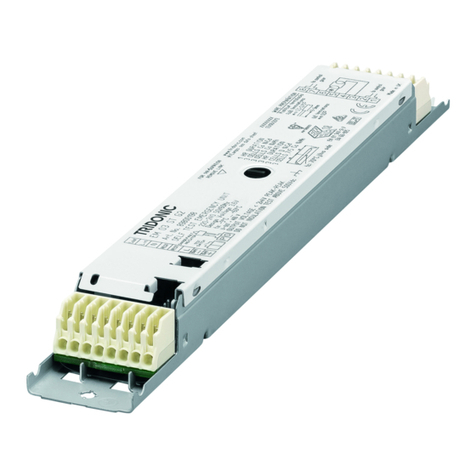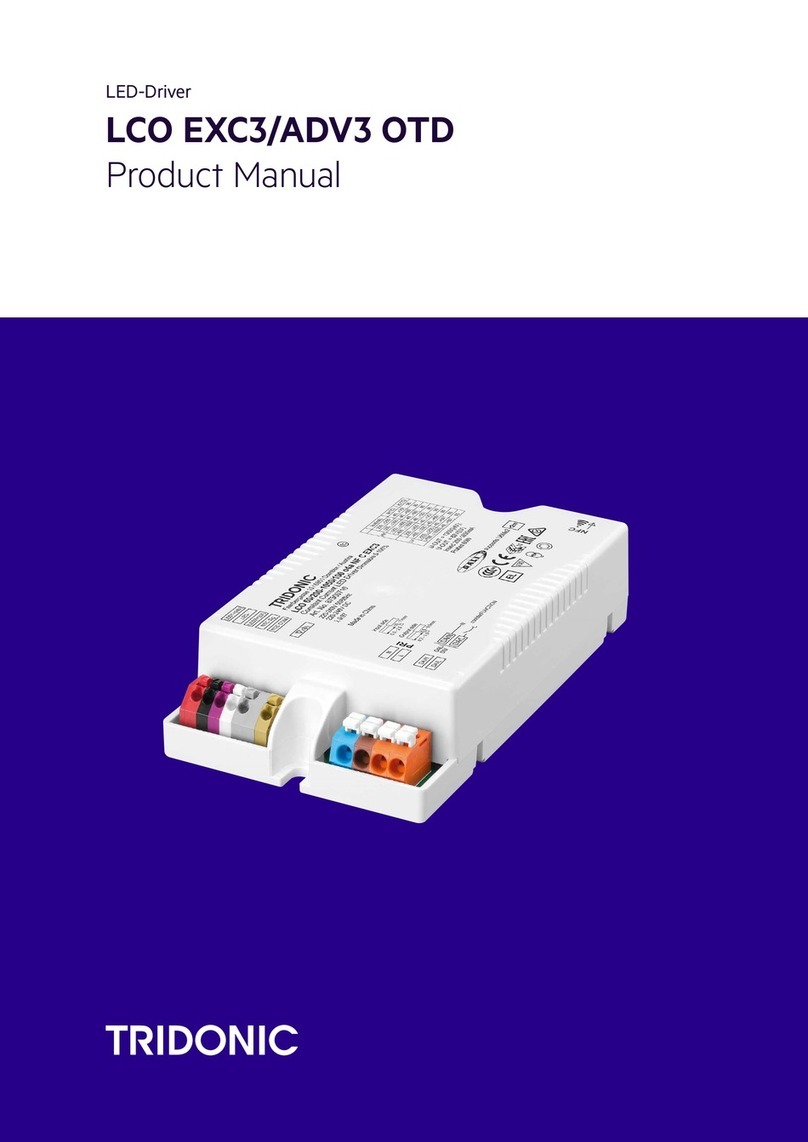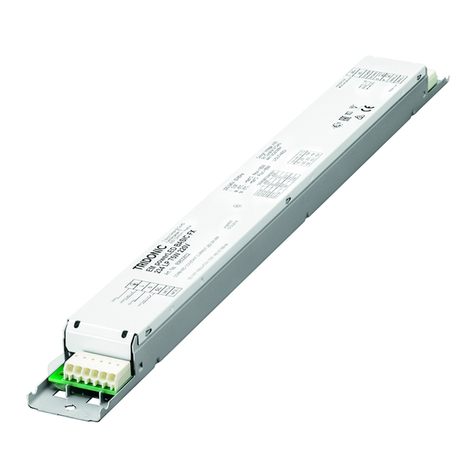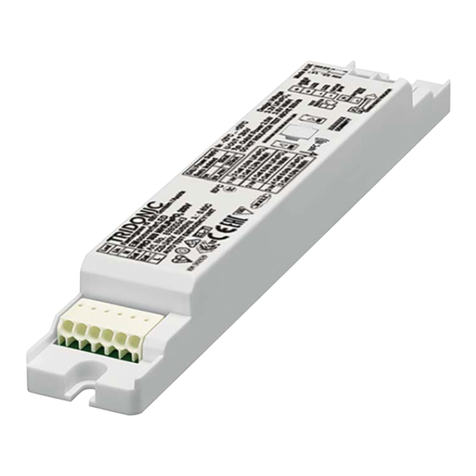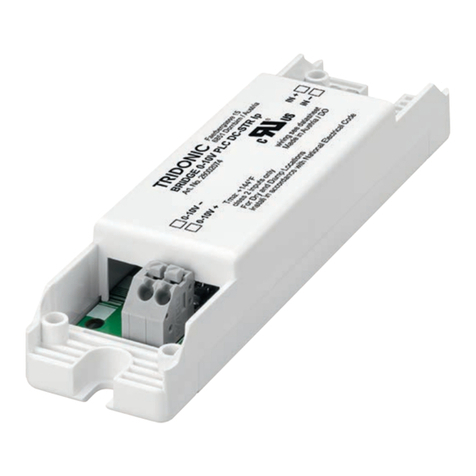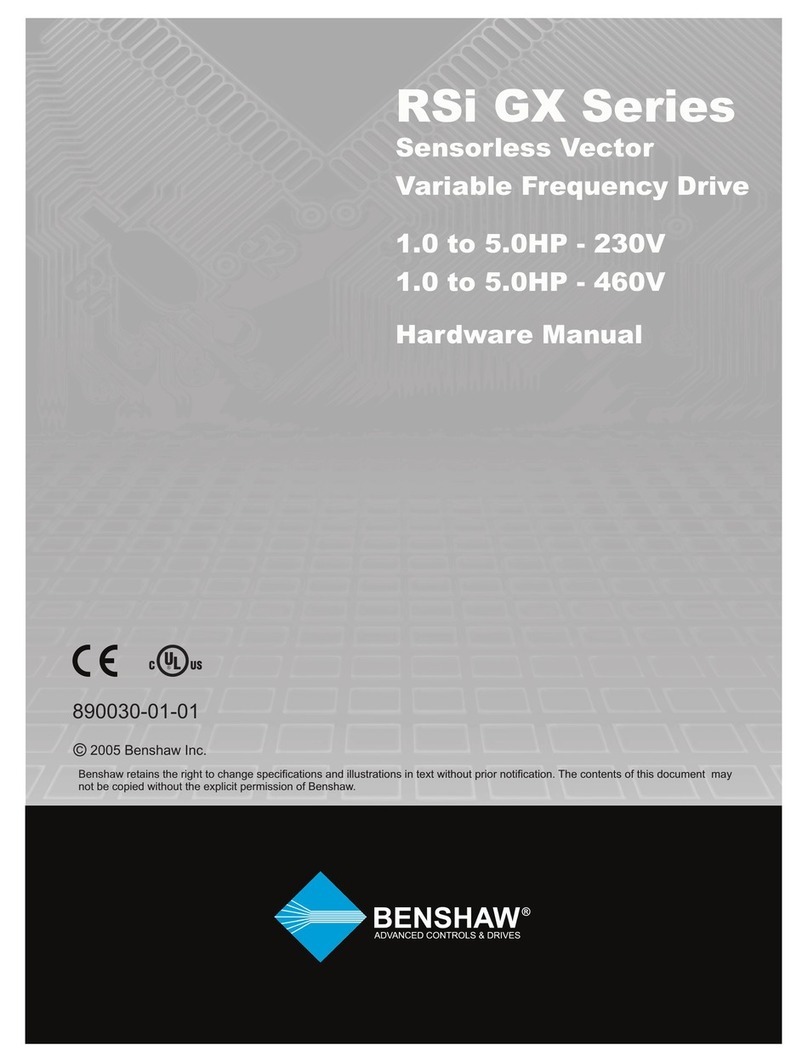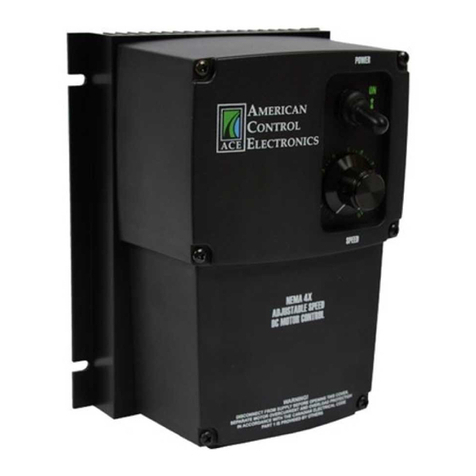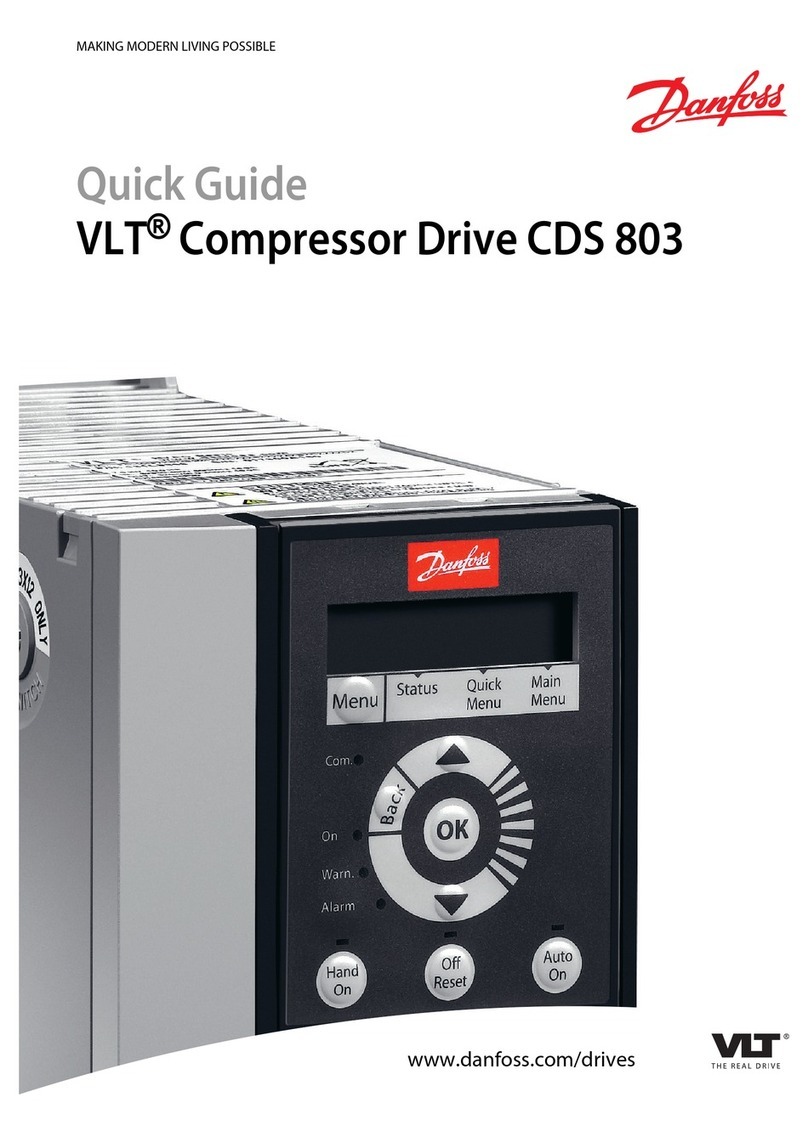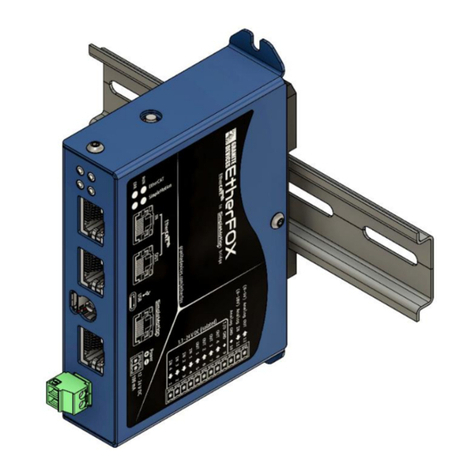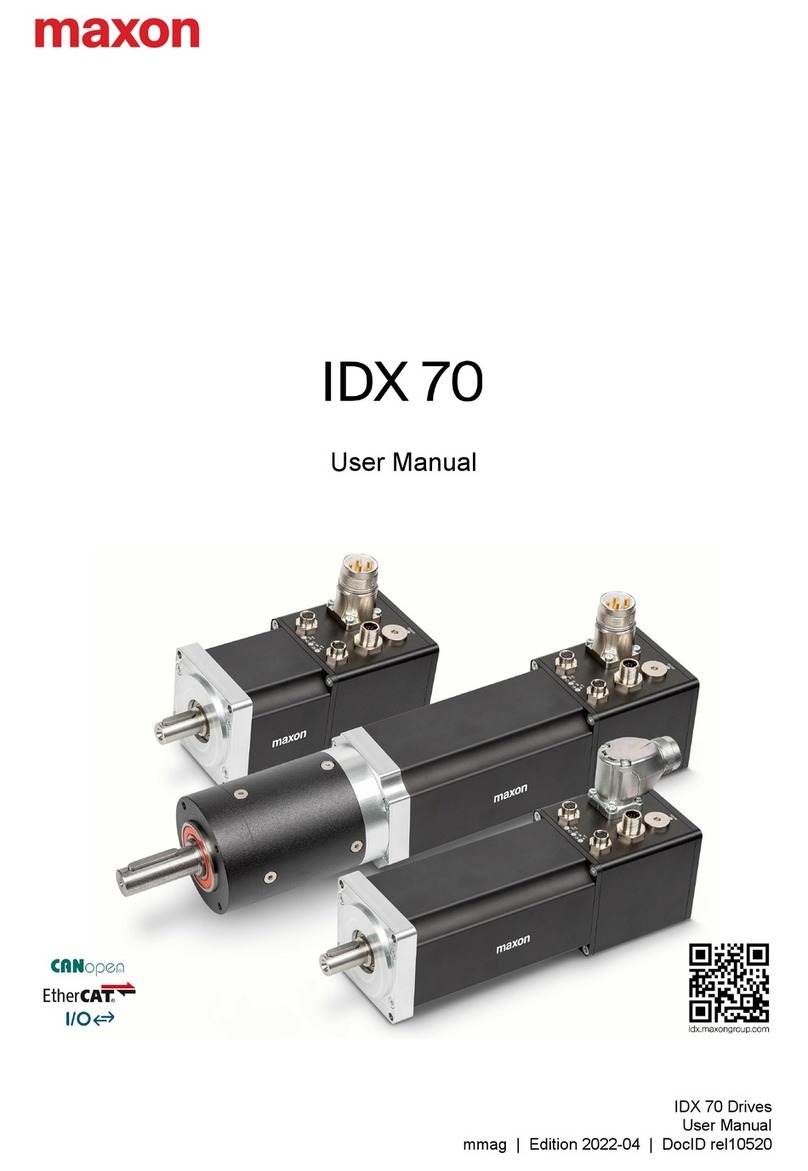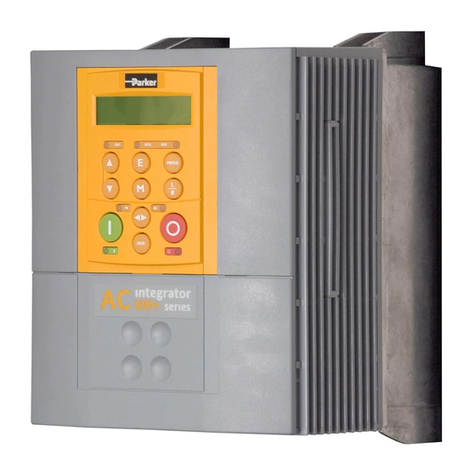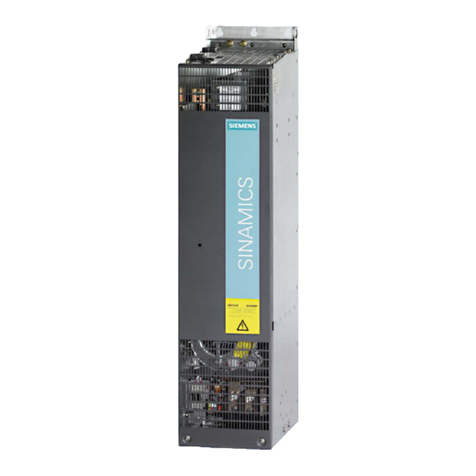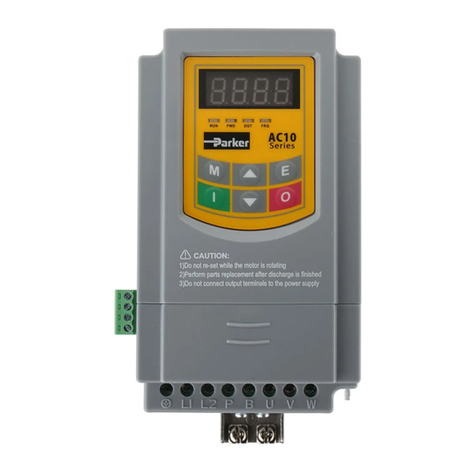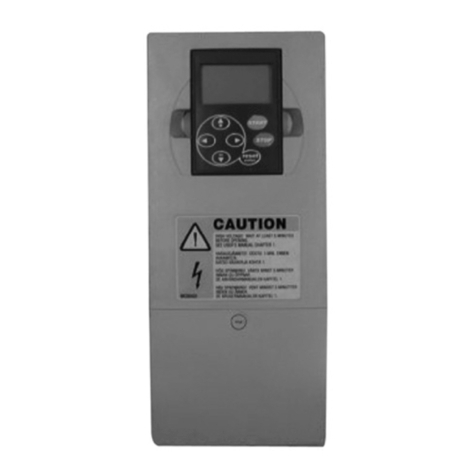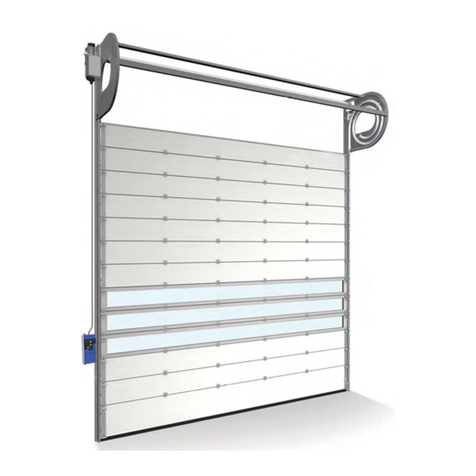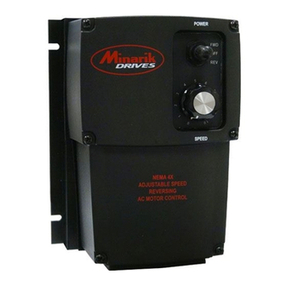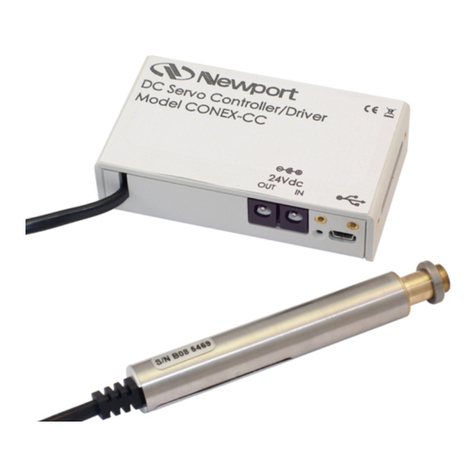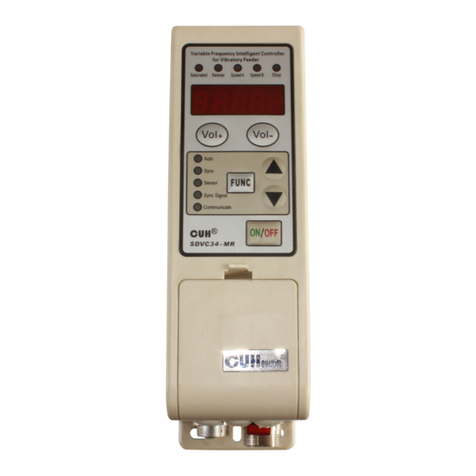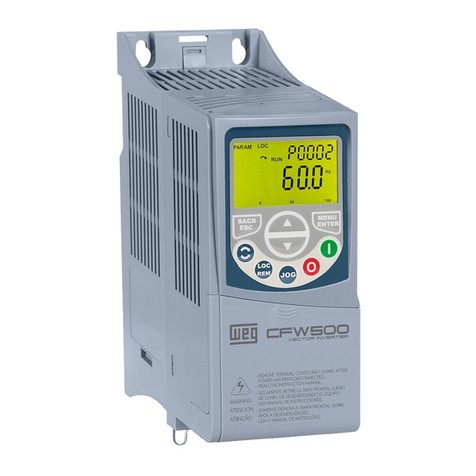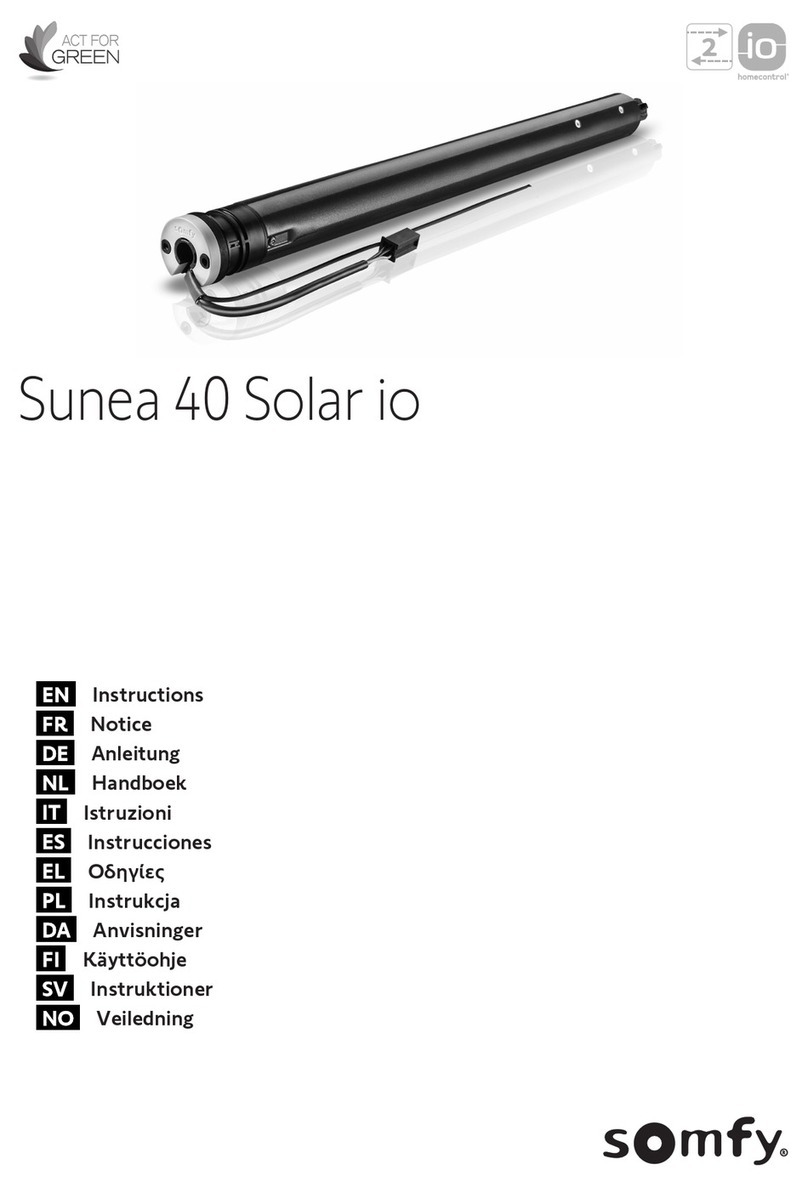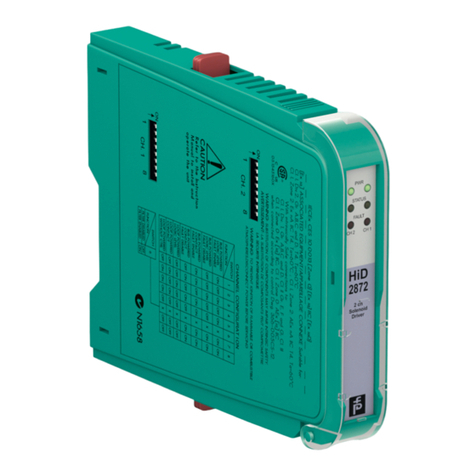Tridonic SELFTEST Series User manual

www.tridonic.com 1
Subject to change without notice. Information provided without guarantee.
Data sheet 11/20-EM098-7
Emergency lighting units
EM converterLED
Product description
• Self-contained emergency lighting LED Driver with self-test
function
• Non maintained operation
• For LED modules with a forward voltage of 10 – 54 V
• SELV for output voltage < 60 V DC
• For luminaire installation
• Nominal life-time up to 100,000 h
• 5-year guarantee
Functions
• 1, 2 or 3 h rated duration selectable with duration link
• Constant power output
Self-test:
• Weekly function test
• Yearly duration test
Driver compatibility
• 3-pole technology: 2-pole LED module changeover
and delayed power switching for the LED Driver
• For further information see chapter „LED Driver compatibility“
Battery management
• Intelligent charge system
• Deep discharge protection
• Polarity reversal protection for battery
Batteries
• NiCd or NiMH batteries
• 4-year design life
• 1-year guarantee
• For battery compatibility refer to chapter „Battery selection“
È
Standards, page 4
Wiring diagrams and installation examples, page 5
EM converterLED ST NiCd/NiMH 50 V
SELFTEST series

www.tridonic.com 2
Subject to change without notice. Information provided without guarantee.
Data sheet 11/20-EM098-7
Emergency lighting units
EM converterLED
EL
Technical data
Rated supply voltage 220 – 240 V
AC voltage range 198 – 264 V
Mains frequency 50 / 60 Hz
LED module forward voltage range 10 – 54 V
Output current see chapter 5.2
Starting time < 0.5 s from detection of emergency
event
Overvoltage protection 320 V (for 48 h)
U-OUT (including open- / short-circuit
and double load)
60 V
Max. open circuit voltage 60 V
Ambient temperature range ta -25 ... +55 °C
Max. casing temperature tc 80 °C
Mains voltage changeover threshold according to EN 60598-2-22
Mains surge capability (between L – N) 1 kV
Mains surge capability (between L/N – PE)2 kV
Type of protection IP20
Rest mode max. number of emergency
units
100
Rest mode max. wiring distance 1,000 m
Functional test Weekly 5s test
Duration test Yearly 1 h / 2 h / 3 h test
Life-time up to 100,000 h
Dimensions LxWxH 179 x 30 x 21 mm
EM converterLED ST NiCd/NiMH 50 V
SELFTEST series
30
21
30
179
169.2 Position A
3 h
No duration
link 2 h
Position B
1 h
Note: LED Driver supplied with duration link in 3 hours position. Duration link must be set
before battery and mains connection.
Ordering data
Type1Article
number
Rated
duration
Packaging,
carton
Packaging,
pallet
Weight
per pc.
EM converterLED ST 202 NiCd/NiMH 50V 1/2/3 h 10 pc(s). 1,600 pc(s).0.073 kg
EM converterLED ST 203 NiCd/NiMH 50V 1/2/3 h 10 pc(s). 1,600 pc(s).0.073 kg
EM converterLED ST 204 NiCd/NiMH 50V 1/2/3 h 10 pc(s). 1,600 pc(s).0.073 kg
Test switch EM3
ACCES-
SORIES
Ordering data
Type Article number Packaging,
bag
Packaging,
carton
Weight
per pc.
Test switch EM 3 89899956 25 pc(s). 200 pc(s). 0.013 kg
Status indication bi-colour LED
ACCES-
SORIES
Specific technical data
Type Rated
duration
Typ. λ
(at 230 V,
50 Hz)
Typ. output
power
P emergency
Mains current in charging operation Rated power in charging operation
Initial charge Fast recharge Trickle charge Initial charge Fast recharge Trickle charge
EM converterLED ST 202 NiCd/NiMH 50V
1 h 0.60C 1.5 W 15 mA 16 mA 13 mA 1.9 W 2.2 W 1.8 W
2 h 0.65C 1.5 W 19 mA 19 mA 15 mA 2.6 W 2.6 W 2.2 W
3 h 0.65C 1.5 W 19 mA 19 mA 15 mA 2.6 W 2.6 W 2.2 W
EM converterLED ST 203 NiCd/NiMH 50V
1 h 0.60C 2.5 W 16 mA 18 mA 13 mA 2.1 W 2.6 W 1.9 W
2 h 0.70C 2.5 W 20 mA 20 mA 16 mA 3.1 W 3.1 W 2.4 W
3 h 0.70C 2.5 W 20 mA 20 mA 16 mA 3.1 W 3.1 W 2.4 W
EM converterLED ST 204 NiCd/NiMH 50V
1 h 0.60C 3.5 W 17 mA 20 mA 14 mA 2.3 W 2.9 W 2.0 W
2 h 0.70C 3.5 W 23 mA 23 mA 17 mA 3.6 W 3.6 W 2.6 W
3 h 0.70C 3.5 W 23 mA 23 mA 17 mA 3.6 W 3.6 W 2.6 W
1 EM = Emergency

www.tridonic.com 3
Subject to change without notice. Information provided without guarantee.
Data sheet 11/20-EM098-7
Emergency lighting units
EM converterLED
Product description
• Two-colour status display LED
• Green: system OK, red: fault
• Plug connection
Product description
• For connection to the emergency lighting unit
• For checking the device function
• Plug connection
Test switch EM3
ACCES-
SORIES
Ordering data
Type Article number Packaging,
bag
Packaging,
carton
Weight
per pc.
Test switch EM 3 89899956 25 pc(s). 200 pc(s). 0.013 kg
Status indication bi-colour LED
ACCES-
SORIES
Ordering data
Type Article number Packaging,
bag
Packaging,
carton
Weight
per pc.
LED EM bi-colour, 1.0 m CON 25 pc(s). 200 pc(s). 0.015 kg
LED EM bi-colour, high brightness HO 1.0 m CON 25 pc(s). 200 pc(s). 0.015 kg
LED EM bi-colour, 0.6 m CON 25 pc(s). 200 pc(s). 0.005 kg
LED EM bi-colour, high brightness HO 0.6 m CON 25 pc(s). 200 pc(s). 0.005 kg
LED EM bi-colour, 0.3 m CON 25 pc(s). 200 pc(s). 0.005 kg
LED EM bi-colour, high brightness HO 0.3 m CON 25 pc(s). 200 pc(s). 0.005 kg

www.tridonic.com 4
Subject to change without notice. Information provided without guarantee.
Data sheet 11/20-EM098-7
Emergency lighting units
EM converterLED
1. Standards
• EN 61347-1
• EN 61347-2-13
• EN 61347-2-7
• EN 55015
• EN 61000-3-2
• EN 61000-3-3
• EN 61547
• EN 60068-2-64
• EN 60068-2-29
• EN 60068-2-30
• EN 62384
• according to EN 50172
• according to EN 60598-2-22
• according to EN 62034
1.1 Glow-wire test
according to EN 61347-1 with increased temperature of 850 °C passed.
1.2 Insulation and electric strength testing of luminaires
Electronic LED-Drivers can be damaged by high voltage. This has to be consid-
ered during the routine testing of the luminaires in production.
According to IEC 60598-1 Annex Q (informative only!) or ENEC 303-Annex A,
each luminaire should be submitted to an insulation test with 500VDC for 1 sec-
ond. This test voltage should be connected between the interconnected phase
and neutral terminals and the earth terminal. The insulation resistance must be
at least 2 MΩ.
As an alternative, IEC 60598-1 Annex Q describes a test of the electrical
strength with 1,500 VAC (or 1,414 x 1,500 VDC). To avoid damage to the electronic
devices this test must not be conducted.
2. Thermal details and life-time
2.1 Life-time
Average life-time 50,000 hours under rated conditions with a failure rate of
less than 10 %. Average failure rate of 0.2 % per 1000 operating hours.
3. Installation / Wiring
3.1 Wiring diagram
One or more LED modules with a total forward voltage of 50 to 250 V can be
connected to the EM converterLED module. These LED module(s), marked with
“Emergency” are operated in emergency mode from the associated battery. In
normal mains mode all LED modules are operated by the mains LED Driver.
Meaning of marking
Double or reinforced insulation for built-in electronic LED Drivers. The control
gear relies upon the luminaire enclosure for protection against accidental contact
with live parts.
Expected life-time
EM converterLED ST 202
NiCd/NiMH 50V
tc 65 °C 70 °C 75 °C 80 °C
life-time > 100,000 h > 100,000 h > 100,000 h 90,000 h
EM converterLED ST 203
NiCd/NiMH 50V
tc 65 °C 70 °C 75 °C 80 °C
life-time > 100,000 h > 100,000 h > 100,000 h 83,000 h
EM converterLED ST 204
NiCd/NiMH 50V
tc 65 °C 70 °C 75 °C 80 °C
life-time > 100,000 h > 100,000 h > 100,000 h 82,000 h
The emergency lighting LED Driver is designed for a life-time stated above
under reference conditions and with a failure probability of less than 10 %.
The relation of tc to ta temperature depends also on the luminaire design.
If the measured tc temperature is approx. 5 K below tc max., ta tempera-
ture should be checked and eventually critical components (e.g. ELCAP)
measured. Detailed information on request.

www.tridonic.com 5
Subject to change without notice. Information provided without guarantee.
Data sheet 11/20-EM098-7
Emergency lighting units
EM converterLED
Neutral
+
+
–
–
+
––
+
P
O
Lout
Lin
N
Rest
Rest
L
L
N
Neutral
Rest mode control
Rest mode control
Un-Switched Line Test
switch
Indicator
LED
Switched Line out
Switched Line in
Control gear
LED
LED
Control gear
Battery
Battery
LED Module
Emergency
–
+
LED control gear
max. 150 W in operation
EM ConverterLED
SELFTEST
+
+
–
–
+
––
+
P
O
Lout
Lin
N
Rest
Rest
L
EM ConverterLED
SELFTEST
Neutral
Rest mode control
Rest mode control
Un-Switched Line Test
switch
Indicator
LED
Not connected
Not connected
Control gear
LED
LED
Control gear
Battery
Battery
LED Module
Emergency
EM converterLED SELFTEST with one LED module for non-maintained emergency operation
EM converterLED SELFTEST with a standard LED Driver and one LED module for mains and emergency operation
EM converterLED SELFTEST with a standard LED Driver and series operation of LED modules
One LED module is operated in emergency mode.
All LED modules are operated in mains mode.
Neutral
+
+
–
–
+
––
+
P
O
L
N
Test
switch
Indicator
LED
Switched Line in
Control gear
LED
LED
Control gear
Battery
Battery
LED Module
Emergency
–
+
–
+
LED Module
–
+
LED Module
LED control gear
max. 150 W in operation
Lout
Lin
N
Rest
Rest
L
Neutral
Rest mode control
Rest mode control
Un-Switched Line
Switched Line out
EM ConverterLED
SELFTEST

www.tridonic.com 6
Subject to change without notice. Information provided without guarantee.
Data sheet 11/20-EM098-7
Emergency lighting units
EM converterLED
EM converterLED SELFTEST with a standard LED Driver and parallel operation of LED modules
Neutral
+
+
–
–
+
––
+
P
O
L
N
Test
switch
Indicator
LED
Control gear
LED
LED
Control gear
Battery
Battery
LED Module
Emergency
–
+
–
+
LED Module
–
+
LED Module
LED control gear
max. 150 W in operation
Switched Line in Lout
Lin
N
Rest
Rest
L
Neutral
Rest mode control
Rest mode control
Un-Switched Line
Switched Line out
EM ConverterLED
SELFTEST
One LED module is operated in emergency mode.
All LED modules are operated in mains mode.
8 – 9 mm
wire preparation:
0.5 – 1.5 mm²
3.2 Wiring type and cross section
Solid wire with a cross section of 0.5 – 1.5 mm². Strip 8 – 9 mm of insulation
from the cables to ensure perfect operation of terminals.
3.4 Wiring guidelines
• The output to the LED is DC but has high frequency content, which should be
considered for good EMC compliance.
• LED leads should be separated from the mains and DALI connections and
wiring for good EMC performance.
• Maximum lead length on the LED terminals is 3 m. For a good EMC
performance keep the LED wiring as short as possible.
• The secondary wires (LED module) should be routed in parallel to ensure
good EMC performance.
3.5 Maximum lead length
LED 3 m1
Status indication LED 1 m
Batteries 0.8 m
1Note: The length of LED leads to the LED module must not be exceeded. Note that the length
of the EM converterLED leads is added to the length of the leads from the LED Driver to the EM
converterLED module when considering max. permitted lead length of the LED Driver. Leads
should always be kept as short as possible.
• Maximum lead length for the Test switch and Indicator LED connection is 1 m.
The test switch and Indicator LED wiring should be separated from the LED
leads to prevent noise coupling.
• Battery leads are specified with 0.5 mm cross section and a length of 0.8 m
• DALI terminals are mains proof
• To avoid the damage of the control gear, the wiring must be protected against
short circuits to earth (sharp edged metal parts, metal cable clips, louver, etc.)
To ensure that a luminaire containing LED emergency units complies with EN
55015 for radio frequency conducted interference in both normal and emergency
mode it is essential to follow good practice in the wiring layout.
Within the luminaire the switched and unswitched 50 Hz supply wiring must be
routed as short as possible and be kept as far away as possible from the LED
leads.Through wiring may affect the emc performance of the luminaire.
The length of LED leads to the LED module must not be exceeded. Note that
the length of the EM converterLED leads to the LED module is added to the
length of the leads from the LED Driver to the EM converterLED module when
considering the max. permitted lead length of the LED Driver.
3.3 Loose wiring
Loosen wire through twisting
and pulling or using a Ø1 mm
release tool

www.tridonic.com 7
Subject to change without notice. Information provided without guarantee.
Data sheet 11/20-EM098-7
Emergency lighting units
EM converterLED
3.6 Use of different phases
The use of different phases for switched line and unswitched line is allowed.
When using different phases, the unswitched line must fail if the switched
line fails. This is required to assure correct switching into emergency mode. It
can be realised with a relay.
4. Mechanical values
4.1 Housing properties
• Casing manufactured from polycarbonate.
• Type of protection: IP20
4.2 Mechanical data accessories
LED status indicator
• Bi-colour
• Mounting hole 6.5 mm diameter, 1 – 1.6 mm thickness
• Lead length 0.3 m / 1.0 m
• Insulation rating: 90 °C
• Plug connection
Test switch
• Mounting hole 7.0 mm diameter
• Lead length 0.55 m
• Plug connection
Battery connection
• Plug connection 0.3 m
• Extension 0.5 m
Automatic circuit breaker type B10 B13 B16 B20 C10 C13 C16 C20 Inrush current
Installation Ø1.5 mm21.5 mm21.5 mm22.5 mm21.5 mm21.5 mm21.5 mm22.5 mm2Imax time
EM converterLED ST NiCd/NiMH 50V 90 130 130 130 180 260 260 260 10 A 120 μs
5. Electrical values
5.1 Maximum loading of automatic circuit breakers
5.2 Insulation matrix
Mains Switched Live Battery, LED, Test
switch, Indicator LED REST
Mains – • • • •
Switched Live • – • • •
Battery, LED, Test
switch, Indicator LED • • • • – •
REST • • • –
• Represents basic insulation
• • Represents double or reinforced insulation
When using a non-SELV LED Driver insulate the battery, LED, test switch and indicator LED in the luminaire according to the
U-OUT rating of the LED Driver.

www.tridonic.com 8
Subject to change without notice. Information provided without guarantee.
Data sheet 11/20-EM098-7
Emergency lighting units
EM converterLED
5.3 Typ. LED current/voltage characteristics
The LED current in emergency mode is automatically adjusted by the EM converterLED module based on the total forward voltage of the LED modules con-
nected and the associated battery. The start of the LED in emergency mode does not result in a current peak.
EM converterLED ST 202 NiCd/NiMH 50V
Article number: 89800646
2.4 V battery voltage
730 – 790 mA battery discharge current (tolerance)
EM converterLED ST 203 NiCd/NiMH 50V
Article number: 89800647
3.6 V battery voltage
780 – 840 mA battery discharge current (tolerance)
LED current [mA]
VLED [V] VLED [V]
LED current [mA]
EM converterLED ST 204 NiCd/NiMH 50V
Article number: 89800648
4.8 V battery voltage
800 – 860 mA battery discharge current (tolerance)
LED current [mA]
VLED [V]
LED current at nominal battery voltage and
min. battery discharge current
LED current at nominal battery voltage and
max. battery discharge current
0302010 40 50 60
20
40
60
80
160
140
100
120
0
0302010 40 50 60
50
100
150
300
200
250
0
0302010 40 50 60
50
150
100
200
250
400
300
350
0

www.tridonic.com 9
Subject to change without notice. Information provided without guarantee.
Data sheet 11/20-EM098-7
Emergency lighting units
EM converterLED
6.3 Commissioning
After installation of the luminaire and initial connection of the mains supply
and battery supply to the EM converterLED ST the unit will commence char-
ging the batteries for the initial charge time. The recharge occurs also if a
new battery is connected or the module exits the rest mode condition.
The following automatic commissioning duration test is only performed when
a battery is replaced and fully charged.
6.4 Testing
Commissioning test
A full commissioning test is carried out automatically after permanent con-
nection of the supply for 5 days. The easy commissioning feature will set the
initial test day and time to ensure random testing of units.
Functional test
Functional tests are carried out for 5 seconds on a weekly basis under the
control of the Micro controller. Initiation and timing of these tests is set duri-
ng the commissioning of the luminaire.
Duration test
A full duration test is carried out yearly to check the capacity of the batteries.
For a full description of commissioning and test features please refer to
application notes.
Test switch
An optional test switch can be wired to each EM converterLED ST. This can
be used to to:
• Initiate a 5 seconds function test: press 200 ms < T < 1 s
• Execute function test as long as switch pressed: press > 1 s
• Reset selftest timer (adjust local timing): press > 10 s
5.4 LED Driver compatibility
The EM converterLED emergency unit use 3 pole technology and is compa-
tible with most LED Drivers on the market, however it is important to check
that the rating of the LED Driver does not exceed the values specified below:
• The max. allowed output current rating of the associated LED Driver is
2.4 A peak (current rating of switching relays of EM converterLED)
• The max. allowed inrush current rating of the associated LED Driver is
60 A peak for 1 ms or 84 A for 255 μs (inrush current rating of switching
relay of EM converterLED)
• The max. allowed output voltage (U-OUT) of the associated LED Driver
applied to the EM converterLED output is 450V (voltage withstand
between adjacent contact of the single switching relay of the
EM converterLED)
• The max. allowed LED load of the associated LED Driver is 150 W in
operation. The load must be an LED module.
6. Functions
6.1 Duration link selection
Emergency lighting LED Driver supplied with duration link in 3 hours positi-
on (position A).
The position of the link will only be read on first power up. If it is changed
afterwards both the battery and mains supply must be disconnected for 10
seconds to enable the EM converterLED to read the new link position on
reconnection of the battery and mains. It will lead to a false battery failure
indication if the link is changed after installation without this reset.
6.2 Status indication
System status is indicated by a bi-colour LED.
LED indication Status Comment
Permanent green System OK AC mode
Fast flashing green
(0,1 sec on – 0,1 sec o)
Function test
underway
Slow flashing green
(1 sec on – 1 sec o)
Duration test
underway
Red LED on Load failure Open circuit / Short circuit / LED failure
Slow flashing red
(1 sec on – 1 sec o)
Battery failure Battery failed the duration test or function
test / Battery is defect or deep discharged/
Incorrect battery voltage
Fast flashing red
(0,1 sec on – 0,1 sec o)
Charging failure Incorrect charging current
Double pulsing green Inhibit mode Switching into inhibit mode via controller
Green and red o DC mode Battery operation (emergency mode)
2 hr
3 hr
No duration link
Position A
Duration Link position
1 hr
Position B

www.tridonic.com 10
Subject to change without notice. Information provided without guarantee.
Data sheet 11/20-EM098-7
Emergency lighting units
EM converterLED
Pulse/Mode Standby Emergency Rest
150 – 1,000 ms Inhibit Rest –
1,000 – 2,000 ms Cancel inhibit –Re-light
Timer reset functionality
The timer for function and duration test can be set to a particular time of the
day by either pressing the test switch for longer than 10 seconds or cycling
the unswitched line supply 5 times within 1 minute. The timer adjustment
will enable the test start time to be defined manually at time in day when
the timer was reset. It will also disable the adaptive test algorithm thereby
forcing the unit to perform the test at the same time rather than it being
defined by the adaptive algorithm. This function will only work provided the
interval time is greater than zero (automatic test mode enabled). The delay
timer value set when the unit was commissioned will be reloaded in order to
randomise the tests between adjacent units.
Rest Mode / Inhibit Mode
Emergency operation is automatically started when the mains supply is
switched off. If the Rest Mode is activated, the discharging of the battery will
be minimized by switching off the LED output. If the Inhibit Mode has been
activated before the mains supply is switched off, Rest Mode will be automa-
tically activated if the mains supply is switched off within 15 minutes.
Rest Mode and Inhibit Mode can be initiated by applying a short pulse bet-
ween 9.5 and 22.5 VDC in amplitude for a period of 150 to 1,000 ms. This pulse
shall be applied to terminals marked Rest.
After a mains reset the EM converterLED ST exits the Rest Mode. Rest Mode
and Inhibit Mode can both be disabled by applying a voltage pulse of
1,000 to 2,000 ms to the terminals marked as Rest to send the RE-LIGHT/
RESET INHIBIT command.

www.tridonic.com 11
Subject to change without notice. Information provided without guarantee.
Data sheet 11/20-EM098-7
Emergency lighting units
EM converterLED
7. Battery data
7.1 Battery selection
7.2 Battery charge / discharge data
EM converterLED, 1 / 2 / 3 h, NiMH
Type EM converterLED ST
202 NiCd/NiMH 50V
EM converterLED ST
203 NiCd/NiMH 50V
EM converterLED ST
204 NiCd/NiMH 50V
Article no. 89800646 89800647 89800648
Duration 1 h 2 / 3 h 1 h 2 / 3 h 1 h 2 / 3 h
Battery charge
time
Initial charge 20 h
Fast recharge 10 h 15 h 10 h 15 h 10 h 15 h
Trickle charge continuously
Charging current
Initial charge 110 – 150 mA 280 – 320 mA 110 – 150 mA 280 – 320 mA 110 – 150 mA 280 – 320 mA
Fast recharge 190 – 230 mA 310 – 350 mA 190 – 230 mA 310 – 350 mA 190 – 230 mA 310 – 350 mA
Trickle charge 50 – 90 mA 110 – 150 mA 50 – 90 mA 110 – 150 mA 50 – 90 mA 110 – 150 mA
Discharge current 730 – 790 mA 730 – 790 mA 780 – 840 mA 780 – 840 mA 800 – 860 mA 800 – 860 mA
Charge voltage range10.9 – 1.65 V per cell
Discharge voltage range 1.65 – 1.05 V per cell
1The battery will be charged below 0.9 V. The EM converterLED will indicate a battery fault.
The emergency lighting LED Driver will recharge the battery normally after running the test of 61347-2-7 CL 22.3 (abnormal operating conditions).
EM converterLED, 1 / 2 / 3 h
Type EM converterLED ST
202 NiCd/NiMH 50V
EM converterLED ST
203 NiCd/NiMH 50V
EM converterLED ST
204 NiCd/NiMH 50V
Article no. 89800646 89800647 89800648
Cells 2 cells 3 cells 4 cells
Duration 1 h 2 / 3 h 1 h 2 / 3 h 1 h 2 / 3 h
Technology
and capacity
Design Number
of cells
Type Article no. Assignable batteries
NiCd 4 Ah
D cells
stick 1 x 2 Accu-NiCd 2A 55 •
stick 1 x 3 Accu-NiCd 3A 55 •
stick 1 x 4 Accu-NiCd 4A 55 •
side by side 3 x 1 Accu-NiCd 3B 55 •
side by side 4 x 1 Accu-NiCd 4B 55 •
stick + stick 2 + 2 Accu-NiCd 4C 55 •
remote box 1 x 3 Pack-NiCd 3D CON •
remote box 1 x 4 Pack-NiCd 4D CON •
NiMH 2.2 Ah
Cs cells
stick 1 x 2 Accu-NiMH 2A •
stick 1 x 3 Accu-NiMH 3A •
stick 1 x 4 Accu-NiMH 4A •
remote box 1 x 3 Pack-NiMH 2.2Ah 3 CON •
remote box 1 x 4 Pack-NiMH 2.2Ah 4 CON •
NiMH 4 Ah
LA cells
stick 1 x 2 Accu-NiMH 4Ah 2A CON •
stick 1 x 3 Accu-NiMH 4Ah 3A CON •
stick 1 x 4 Accu-NiMH 4Ah 4A CON •
stick + stick 2 + 2 Accu-NiMH 4Ah 4C CON •
remote box 1 x 3 Pack-NiMH 4Ah 3 CON •
remote box 1 x 4 Pack-NiMH 4Ah 4 CON •

www.tridonic.com 12
Subject to change without notice. Information provided without guarantee.
Data sheet 11/20-EM098-7
Emergency lighting units
EM converterLED
8. Miscellaneous
8.1 Maximum number of switching cycles
EM converterLEDs are tested with 50,000 mains switching cycles of the
associated LED driver.
8.2 Battery replacement
After a battery replacement and a subsequent full charge cycle (24 h) a
duration test is mandatory to prove that with the new battery the rated
duration is achieved.
8.3 Additional information
Additional technical information at www.tridonic.com →Technical Data
Guarantee conditions at www.tridonic.com →Services
Life-time declarations are informative and represent no warranty claim.
No warranty if device was opened.
7.8 Storage, installation and commissioning
Relevant information about storage conditions, installation and commissioning
are provided in the battery datasheets.
7.7 Wiring batteries
To inhibit inverter operation disconnect the batteries by removing the con-
nection at battery side.
For further informations refer to corresponding battery datasheet.
7.3 Accu-NiCd
4.2 / 4.5 Ah
International designation KRMU 33/62
Battery voltage/cell 1.2 V
Cell type D
Case temperature range
to ensure 4 years design life +5 °C to +55 °C
Max. short term temperature (reduced life-time) 70 °C
Max. number discharge cycles 12 cycles per year plus
4 cycles during
comissioning
Max. storage time 12 months
7.4 Accu-NiMH
2.2 Ah
International designation HRMU 23/43
Battery voltage/cell 1.2 V
Cell type Cs
Case temperature range
to ensure 4 years design life +5 °C to +50 °C
Max. short term temperature (reduced life-time) 70 °C
Max. number discharge cycles 4 cycles per year plus
30 cycles during
comissioning
Max. storage time 12 months
4.0 Ah
International designation HRMU 19/90
Battery voltage/cell 1.2 V
Cell type LA
Case temperature range
to ensure 4 years design life +5 °C to +45 °C
Max. short term temperature (reduced life-time) 70 °C
Max. number discharge cycles 4 cycles per year plus
30 cycles during
comissioning
Max. storage time 12 months
7.5 Accupack-NiCd
4.5 Ah
Battery voltage/cell 1.2 V
Cell type D
Ambient temperature range
to ensure 4 years design life +5 °C to +40 °C
tc point +45 °C
Max. short term temperature (reduced life-time) 70 °C
Max. number discharge cycles 4 cycles per year plus
4 cycles during
comissioning
Max. storage time 6 months
7.6 Accupack-NiMH
2.2 Ah
Battery voltage/cell 1.2 V
Cell type Cs
Ambient temperature range
to ensure 4 years design life +5 °C to +35 °C
tc point +40 °C
Max. short term temperature (reduced life-time) 70 °C
Max. number discharge cycles 4 cycles per year plus
4 cycles during
comissioning
Max. storage time 12 months
4.0 Ah
Battery voltage/cell 1.2 V
Cell type LAL
Ambient temperature range
to ensure 4 years design life +5 °C to +35 °C
tc point +40 °C
Max. short term temperature (reduced life-time) 70 °C
Max. number discharge cycles 4 cycles per year plus
4 cycles during
comissioning
Max. storage time 12 months
For a higher battery temperature rating for NiMH 4 Ah refer to the
EM converterLED xx MH/LiFePO4 product range.
Other manuals for SELFTEST Series
1
This manual suits for next models
7
Table of contents
Other Tridonic DC Drive manuals
